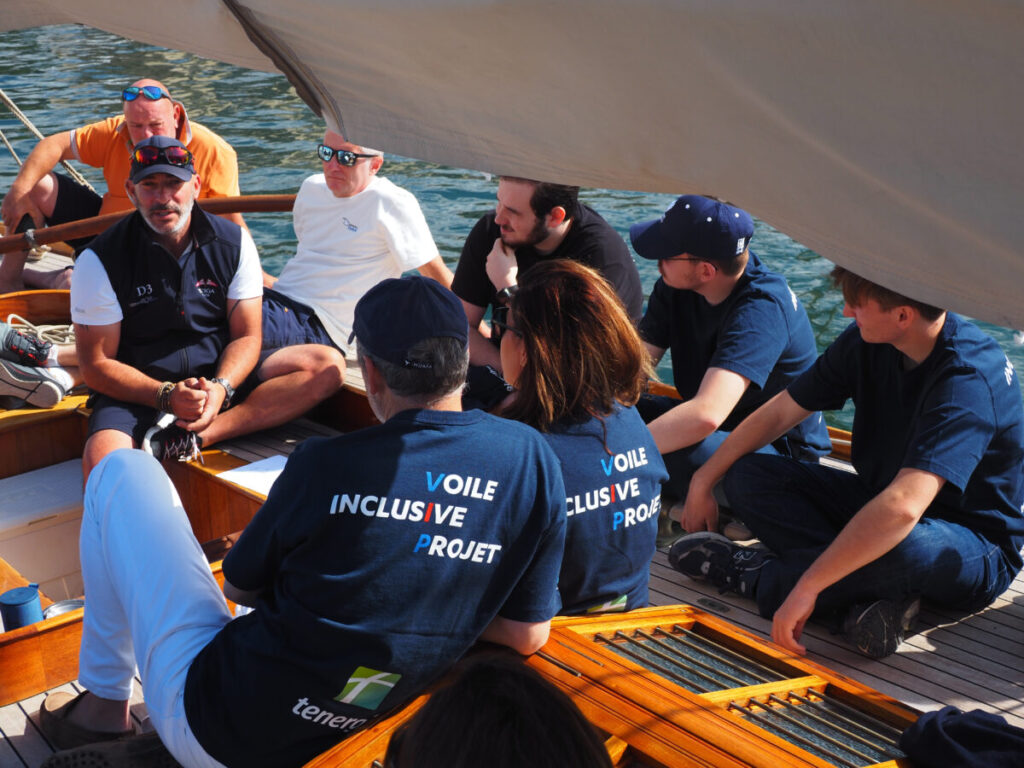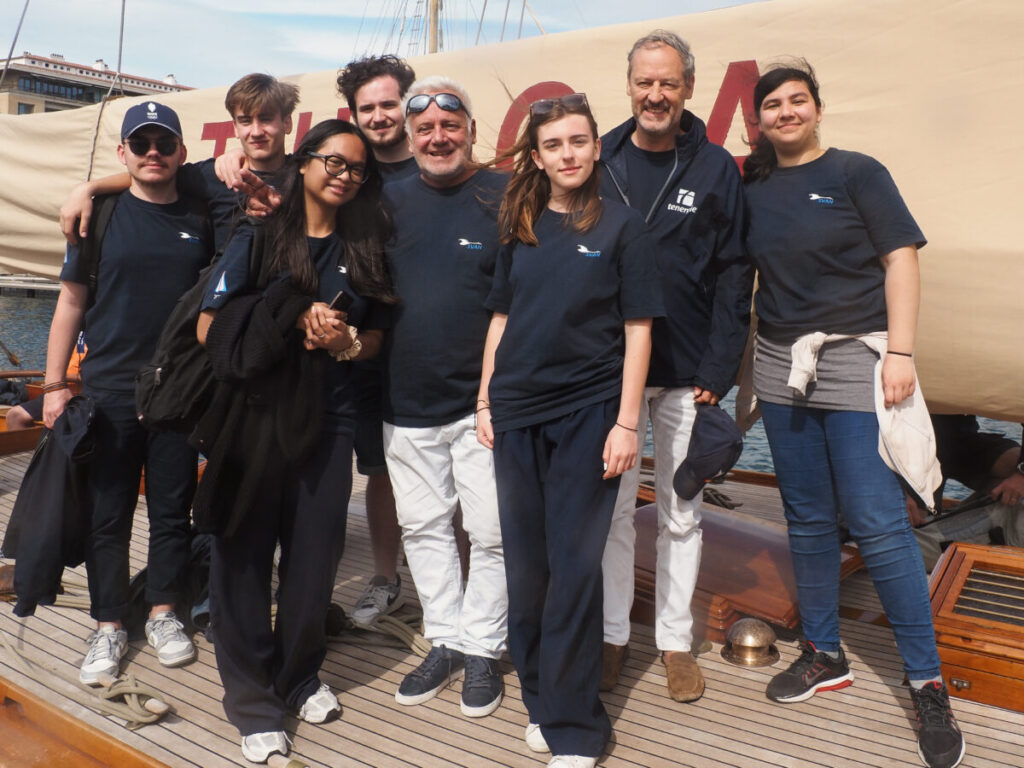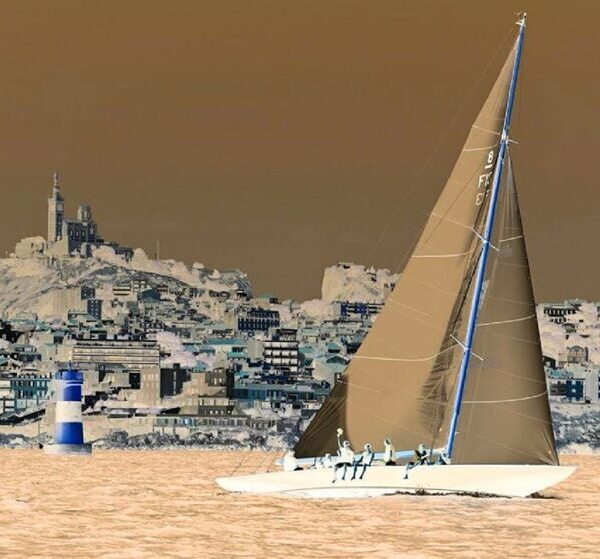Yachting, especially on traditional wooden sailboats, remains an activity reserved for the elite. In France, this elite is mostly from bourgeois backgrounds and is perpetuated through access to the best higher education institutions. In Marseille, the Voile Inclusive Projet (VIP) aims to break this determinism by opening prestigious regattas to scholarship students who have entered preparatory classes for top schools.
During the grand nautical parade that celebrated the arrival of the Belem in Marseille with the Olympic flame on board, young people from underprivileged backgrounds found themselves in the front row. They were on board with the crews of prestigious boats, emblematic of the history of Olympic sailing. A privilege for these students enrolled in a new inclusion program, the Voile Inclusive Project (VIP). Launched last October, this sailing training is a pilot model of inclusion. Intrigued by the concept, Cédric Dufoix, the director of the Olympic sites in the region, advocated for giving it strong exposure. In the name of "the ambition set by the Paris 2024 Olympic and Paralympic Games, which aspire to be the most inclusive games in the history of the Olympics," he specifies. It's hard to do better in terms of exposure, as these young people raced in front of cameras from around the world.

An association and partner companies
This inclusion program takes place aboard Svanevit, a sailboat listed as a historical heritage of the Olympic Games. It is piloted by a non-profit organization of general interest: SVAN, which stands for Sauvegarde des Voiliers Anciens, now working in the field of Social and Solidarity Economy (SSE). The association will contact Marc Rosmini, an accredited philosophy professor who teaches in the popular neighborhoods of Marseille. He became known to the public about ten years ago by creating with colleagues a "preparatory class for higher education" reserved for professional baccalaureate holders, a path usually dedicated to quick access to employment. Several students who followed this program have nevertheless succeeded in the most prestigious competitions, including those of Centrale Supelec and the Institut Polytechnique de Paris, which attracted the attention of the media and the rectorate.
"Success and fulfillment rely on three types of capital: financial capital, cultural capital, and social capital. The VIP Marseille program contributes to the development of the latter," explains Marc Rosmini. He adds: "Sailing requires harmony, as a crew is a whole. Doing things together is the best way to break stereotypes."
A program designed by a training organization
The VIP program was designed by Marsail, a training organization founded by Christopher Pratt, a professional skipper (Route du Rhum, Transat Jacques Vabre, two-time winner of the Tour de France à la Voile...) and Amandine Deslandes, a trainer in social protection engineering. The Marsail method is based on the notion of trust to achieve performance. "Self-confidence to unleash one's full potential, trust in others for effective and aligned teams, trust in the future, finally!", summarizes Amandine Deslandes.

Discovering "another world"
Nino Salim, a student who joined VIP, says: "Considering the amount of hours the preparatory class requires from me, I really hesitated to further fill my schedule. I am a scholarship holder and have no connections. The mentoring and meeting executives from very different backgrounds allow for an open-mindedness. Sailing on this type of sailboats, entering clubs like 'La Nautique' on the Vieux-Port, was for me another world, far from my daily life." The first outing on a historic sailboat took place on Sunday, May 5th. Coming from the Yacht Club de Monaco to participate in the grand parade of the Olympic flame, Tuiga provided an extraordinary baptism to the promotion. A unique moment shared with top executives, which led to collective efforts for navigation, but also personal exchanges. That was the goal.
